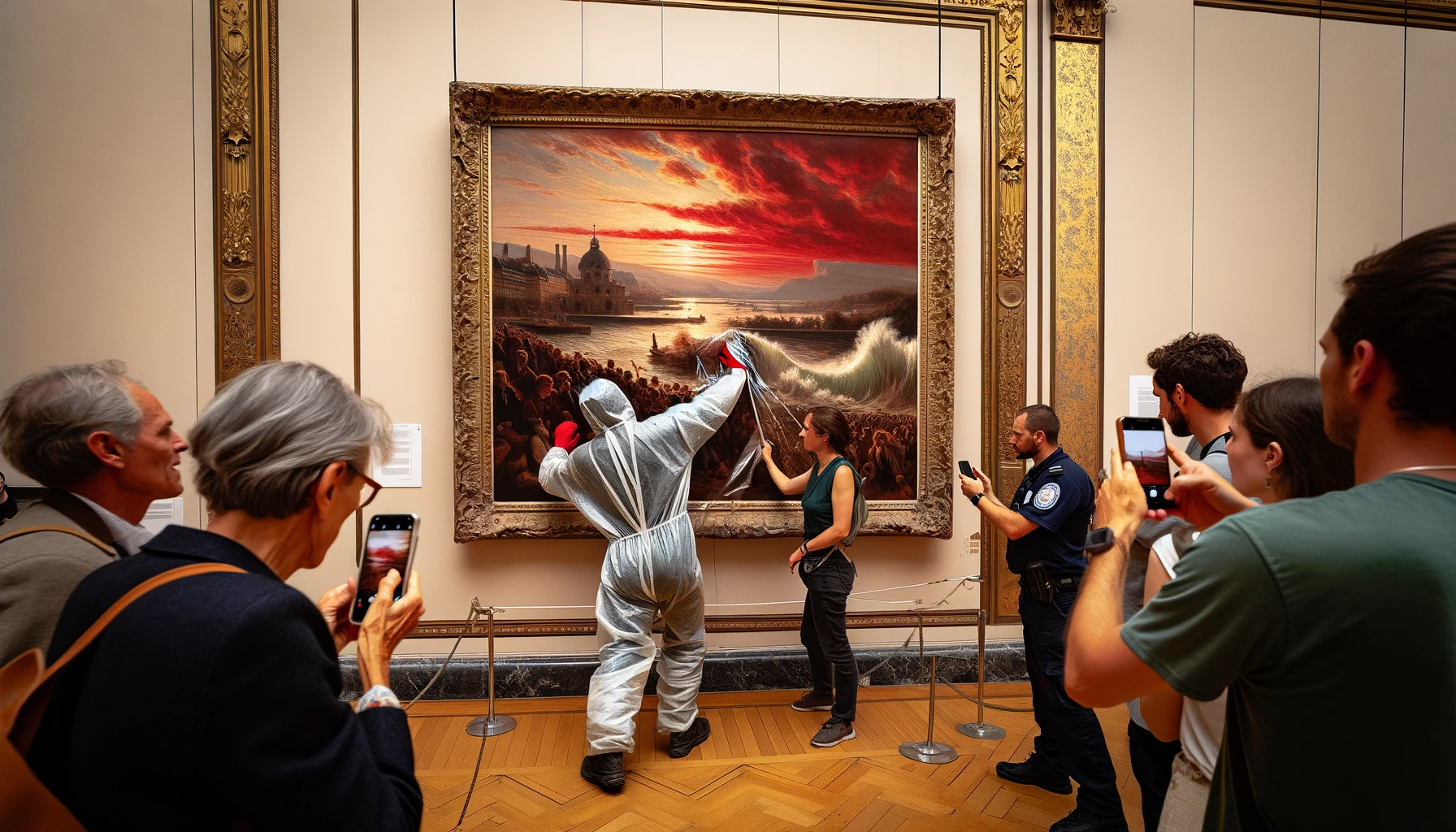On Saturday, a climate activist affixed an adhesive poster to Claude Monet's 1873 painting "Coquelicots" at the Musée d’Orsay. The activist, a member of Riposte Alimentaire, aimed to raise awareness about climate change and was subsequently arrested.
The Incident
Riposte Alimentaire, a group focused on environmental activism and sustainable food production, has been targeting museums across Europe for years. The most recent protest occurred at the Louvre last month.
A video posted on X captured the activist placing an adhesive red landscape over Monet's painting, stating, "this nightmarish image awaits us if no alternative is put in place." The original artwork depicts people strolling through a blooming poppy field. Unlike more heavily protected artworks like Leonardo da Vinci's "Mona Lisa," Monet's painting was not shielded by glass.
Motivations and Reactions
The activist’s actions are part of a broader strategy by Riposte Alimentaire to draw attention to the urgent need for climate action. By targeting high-profile artworks, the group aims to provoke public and media attention, emphasizing the severity of the climate crisis.
This incident at the Musée d’Orsay highlights the tension between protecting cultural heritage and advocating for environmental issues. While some support the activist’s message, others criticize the methods used, viewing them as damaging to irreplaceable works of art.

